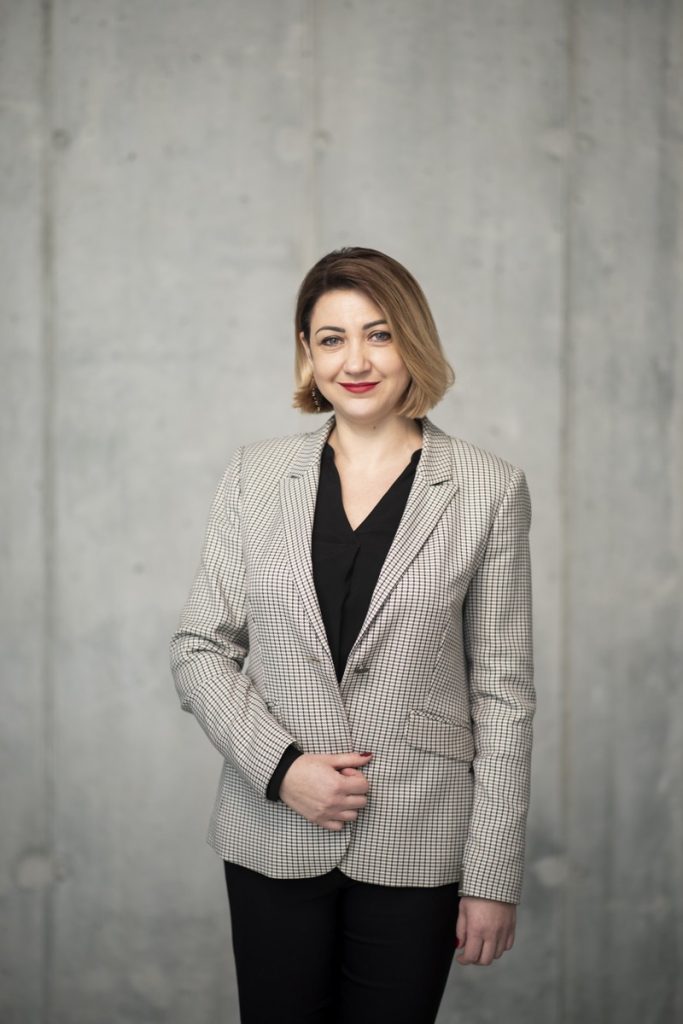Assoc. Prof. Kamandulytė-Merfeldienė: The Youth Read More Than Before

“Literacy is often defined as the ability to write or speak correctly. However, it’s worth discussing what constitutes “correct” language – is it the ability to express thoughts fluently and achieve communicative goals, or is it writing without errors? Researchers base their claims on research findings, yet paradoxically, literacy in Lithuania has hardly been studied. There are no quantitative or statistical results available, making it difficult to ascertain whether the literacy of our society is improving or declining,” says Assoc. Prof. Laura Kamandulytė-Merfeldienė, Head of the Department of Lithuanian Studies at Vytautas Magnus University (VMU).
According to Laura Kamandulytė-Merfeldienė, due to the lack of research, we cannot draw general conclusions about the linguistic literacy of both the Lithuanian public and its youth. There are opinions suggesting that children and young people in Lithuania are becoming increasingly poor at writing and expressing their thoughts, which is attributed to the impact of technology, a dwindling interest in fiction, difficulty concentrating due to information overload, and the influence of foreign languages. However, according to the linguist, these are merely assumptions, as this area remains largely unexplored.
“One of the few studies, conducted by Laima Nevinskaitė and Ramunė Čičirkaitė, analysed student essays from 1950 to 2000. The research indicated no significant difference in literacy levels between today’s students and those from earlier periods. It’s often claimed that the decline in literacy is due to young people reading less than in previous decades. However, are there any studies to support this claim? It seems to me that the youth read more than ever before, but not just fiction; they are engaging with a variety of genres available online. And certainly, not all these texts are trivial; try discussing current topics with young people,” reflects the Head of the VMU Department of Lithuanian Studies.
The associate professor notes that she understands linguistic literacy in a broad sense – as the ability to comprehend and produce language, communicate in various situations, and to use language as a means of communication not only in specific areas but also in everyday life. “Consider whether we can deem a person illiterate who communicates in multiple languages, is interested in technology, constantly seeks information online, and successfully overcomes challenges they encounter. Is such a person less literate than someone who lacks foreign language skills and self-confidence but can write and speak Lithuanian correctly? I would say definitely not,” says Kamandulytė-Merfeldienė.

Assoc. Prof. Dr. Laura Kamandulytė-Merfeldienė
Loanwords pose no threat to the Lithuanian language
The academic claims that it is a myth that English loanwords are taking over the Lithuanian language. A study conducted at the VMU Department of Lithuanian Studies examined natural spoken language (around 300,000 words) and found that new loanwords constituted only about 0.33% of all words.
“Interestingly, the participants were only informed about the study after their conversations had been recorded, so the speech was completely natural. Of course, it’s important to note that in certain areas, such as technology and video games, the use of English loanwords is much higher, but these are specific areas related to the social groups and to phenomena that often lack Lithuanian equivalents,” observes Kamandulytė-Merfeldienė.
The study can be considered representative as it examined various forms of speech, such as public, private, and semi-formal, covering a range of situations with participants of various ages.
Youth speech contains more slang
It has been observed that youth are more prone to using new loanwords. Their language contains more slang, abbreviations, and loanwords, which young people use to express their identity, often rebelling against traditions or norms. Although the youth’s language is rich in loanwords, the associate professor notes that their overall use is moderate, apart from some individual cases. And the fact that young people code-mix and use expressions or words in English is often related to their expression of identity and pragmatic communication purposes.
The linguist agrees that young people’s language is also influenced by technology, such as video games and various applications that involve listening to English. All this can affect the speaker’s sentence structure and other linguistic features. “However, the world of youth does not revolve only around technology, so I wouldn’t dare to claim that it has a significant impact on language,” Laura Kamandulytė-Merfeldienė asserts.
“Language is not homogeneous. How we speak depends on the situation, context, speakers, and topic. Spoken language is particularly diverse, featuring various characteristics not typical of written language, such as abbreviations, atypical word order, and incomplete or interrupted statements. This is due to the nature of spoken language, especially when we speak spontaneously. When we simultaneously formulate thoughts and speak, trying to convey information as quickly as possible without much thought, we often say things that we would want to correct if they were written,” states the associate professor, noting that spontaneous spoken language should not be judged by the criteria of standard language.

Foreigners have more difficulty with Lithuanian endings and prefixes
Among other subjects, Assoc. Prof. Kamandulytė-Merfeldienė teaches Lithuanian to foreigners at Vytautas Magnus University. She says that although it is not easy for them to learn the language, it is important to understand that mistakes are a natural part of the learning process and should not be the focus.
“It is often assumed that the hardest part of learning Lithuanian is the grammar. While it’s not very easy and beginners tend to mix up endings and have difficulty learning prefixes, Lithuanian has a very clear system of rules with few exceptions, so this can be learned. Endings are very common in Lithuanian, so when learners constantly hear words with endings, they remember the most frequent ones even without learning the rules,” she explains, adding that it is easier to learn a new language for those whose native language is similar to it. However, this does not mean that, for example, Latvians or speakers of Slavic languages will always find it easier to learn Lithuanian than English speakers.
“Motivation is the most important factor. This has been proven by research and observed by every practitioner who teaches foreign speakers. Of course, general abilities and personality are also important. For example, an extrovert who enjoys communicating may find it easier to speak the language they are learning than an introvert,” Laura Kamandulytė-Merfeldienė explains, discussing some of the factors that contribute to the success of language learning.
Hundreds of foreigners learn Lithuanian at the university
Every year, Vytautas Magnus University organises Lithuanian Language and Culture courses, where people of Lithuanian descent and foreigners learn the Lithuanian language and become acquainted with Lithuanian culture and customs. The first VMU courses were held in Kaunas 25 years ago. This year, to celebrate the anniversary, a ceremonial course opening event is planned, along with a completely new programme of cultural and educational activities, the preparation and implementation of which has involved professors of history, ethnology, linguistics, literature, and cultural studies. For several years now, the university has been organising courses in Kaunas and Vilnius.
Foreign students, whether studying at VMU or coming for a semester or a year from countries such as Georgia, Poland, Latvia, Germany, the Czech Republic, Austria, and many others, also take advantage of the opportunity to learn Lithuanian at the university. Around several hundred people learn Lithuanian at the university every year.
“All motivated students excel in learning Lithuanian. Research shows that successful learning depends not only on teaching methods, resources, and environment but also on the learners’ motivation. Thus, students successfully learn Lithuanian even outside Lithuania, for example, in Baltic Studies centres at foreign universities, where enthusiastic and inspiring Lithuanian language teachers work,” says Laura Kamandulytė-Merfeldienė.
The associate professor states that the VMU Department of Lithuanian Studies carries out a wide variety of linguistic research, many of which focus on language technologies, digital resources, voice recognition research, and spoken language analysis. Research topics range from hate speech and cyber security to children’s language and communication with pets. According to the linguist, in the near future, the department plans to introduce a new series on its social media channels, dedicated to presenting research in an engaging way.












